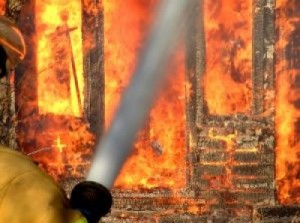 According to the U.S. Federal Emergency Management Administration (FEMA), there are over 10,000 attic fires each year, resulting in an average of 35 deaths, 125 injuries, and $440 million in property damage. And even with all of the newly updated building codes and flame-retardant building materials, the number of residential attic fires isn’t declining. In this post, we’re going to take a closer look at some of the leading causes of attic fires and how to prevent them.
According to the U.S. Federal Emergency Management Administration (FEMA), there are over 10,000 attic fires each year, resulting in an average of 35 deaths, 125 injuries, and $440 million in property damage. And even with all of the newly updated building codes and flame-retardant building materials, the number of residential attic fires isn’t declining. In this post, we’re going to take a closer look at some of the leading causes of attic fires and how to prevent them.
Electrical Malfunction
The single most common cause of residential attic fires is electrical malfunction. When circuits are overloaded and the breaker fails to respond appropriately, the excess “draw” could result in a fire. The FEMA document previously mentioned states that a whopping 43% of all residential attic fires are caused by electrical malfunction.
Here are some tips to avoid electrical fires in the attic:
- Don’t overload outlets or extension cords.
- Only use electronics according to the manufacturer’s specifications.
- Hire a professional electrician to inspect the wiring in your attic.
- Don’t leave electrical appliances or devices plugged into attic outlets. Always unplug them before leaving.
Note: rats, mice, raccoons, squirrels and other animals may chew through electrical wiring, which also increases the chance of an electrical fire in the attic.
Heating
Another common cause of attic fires is heating. Roughly 5% of residential attic fires are caused by home heating systems.
If your home is run on a traditional heating, ventilation and cooling (HVAC) system, it’s a good idea to have it inspected by a professional at least once a year to ensure it’s working properly and there are no fire hazards present. Build ups of dust, lint and debris in the duct work or around the furnace create the potential for a fire.
Natural
An estimated 13% of residential attic fires are caused by natural sources. So, what constitutes a “natural” source? Well, this may include lighting, fallen trees or even rain water dripping onto electrical outlets and wires.
Unfortunately, there’s no way to completely protect your attic against natural fires such as this. However, you can ensure the roofing is intact and use fire-retardant materials to decrease the chance of natural-cause fires.
Hopefully, this blog post will give you a better idea on how to protect you attic against fires.
Do you take extra precautions to prevent fires in your attic. If so, we’d love to hear about it in the comments section below!